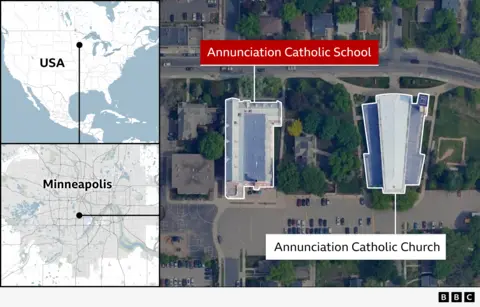The conclave, which saw 133 cardinals gather in the Vatican for decisive voting, culminated in white smoke rising from the chimney of the Sistine Chapel—an iconic moment signaling the election of a new leader for over 1.4 billion Catholics worldwide. Prevost's selection raises pivotal questions about the Church's future, particularly in the wake of Pope Francis's legacy, which emphasized inclusive policies and reform.
Born in Chicago, Prevost has lived much of his life abroad, notably in Peru, where he became a naturalized citizen and served in various ecclesiastical roles. His extensive experience and commitment to social issues—similar to his predecessor—may appeal to a diverse global religious community. Yet, differing opinions are anticipated on contentious topics such as inclusivity for LGBTQ+ Catholics and responses to historical allegations of sexual abuse.
The cardinals who voted included a mix of traditionalists and reformists, indicating potential internal divisions that could influence Prevost's papacy. Observers note his style may contrast with Francis, suggesting a quieter approach to leadership, but whether he will continue along a progressive agenda remains uncertain.
In preparation for his public appearance, anticipated to be laden with symbolic significance, much focus will be on Prevost's inaugural address and the tone he sets for his pontificate. The world watches closely as the new pope embraces his responsibilities, navigating challenges and opportunities inherent within a modern Catholic Church.
Born in Chicago, Prevost has lived much of his life abroad, notably in Peru, where he became a naturalized citizen and served in various ecclesiastical roles. His extensive experience and commitment to social issues—similar to his predecessor—may appeal to a diverse global religious community. Yet, differing opinions are anticipated on contentious topics such as inclusivity for LGBTQ+ Catholics and responses to historical allegations of sexual abuse.
The cardinals who voted included a mix of traditionalists and reformists, indicating potential internal divisions that could influence Prevost's papacy. Observers note his style may contrast with Francis, suggesting a quieter approach to leadership, but whether he will continue along a progressive agenda remains uncertain.
In preparation for his public appearance, anticipated to be laden with symbolic significance, much focus will be on Prevost's inaugural address and the tone he sets for his pontificate. The world watches closely as the new pope embraces his responsibilities, navigating challenges and opportunities inherent within a modern Catholic Church.




















